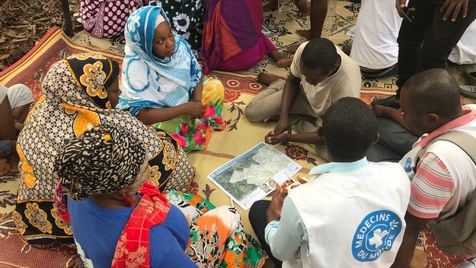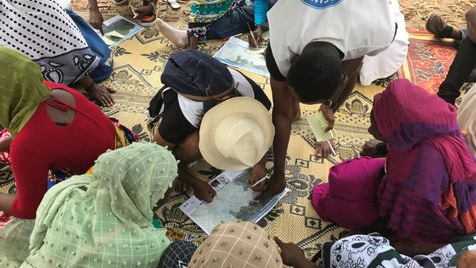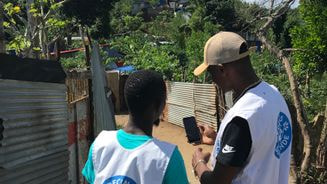
Participatory mapping in Mayotte’s shanty towns
About
Description
In June 2022, Médecins du Monde France requested CartONG’s support to carry out participatory mapping workshops in two precarious neighborhoods in Mayotte, Longoni and Dzoumogné. The objective was to increase Médecins du Monde’s understanding of the two neighborhoods, specifically concerning water points and their accessibility, as part of a project to raise awareness of the impact of water on the health of local communities.
The project aimed to mobilize residents and improve their understanding of the neighborhood’s development issues. CartONG helped Médecins du Monde design and implement a tailored participatory methodology, based on simple mapping tools that would enable residents to actively contribute to the production of geographic information.


Various workshops were organized with Médecins du Monde volunteers and local residents, introducing residents to mapping and defining the legend of the map they wanted for their neighborhood. A selection of tailored and accessible geographic data collection tools allowed residents, supported by Médecins du Monde and its volunteers, to map their neighborhoods. CartONG transformed this data into maps, producing 6 maps for each neighborhood: 1 reference map and 5 thematic maps focusing on issues linked to access to drinking water, waste management, access to emergency services, and spaces to be enhanced and protected.

A feedback workshop was conducted to help participants understand their neighborhood’s development issues and assert their rights to better living conditions. After a year, CartONG’s support ended, and residents developed micro-projects based on the maps. A steering committee of residents and neighborhood associations was formed to implement these citizen initiatives arising from the participatory mapping. In Longoni, a truck carrying drinking water was put in place between the “Monetic Fountain Terminals” and hills neighborhoods, providing water to 123 households. In Dzoumogné, a previously unused Faré was reinvested, and literacy classes for adults were held three times a week.
